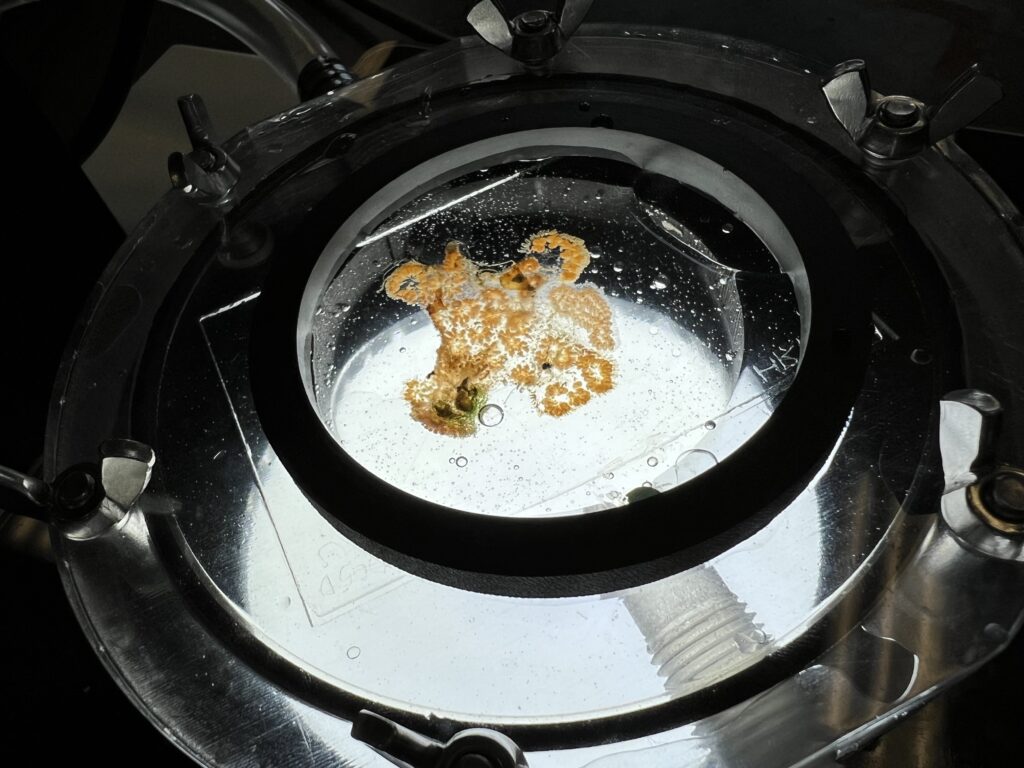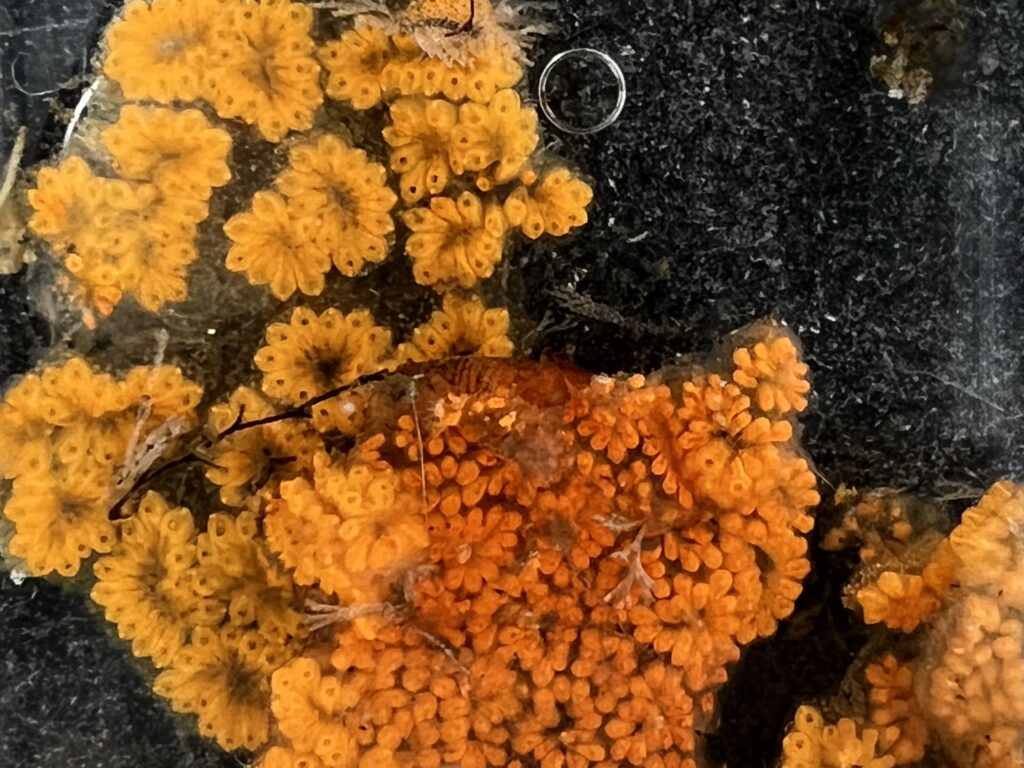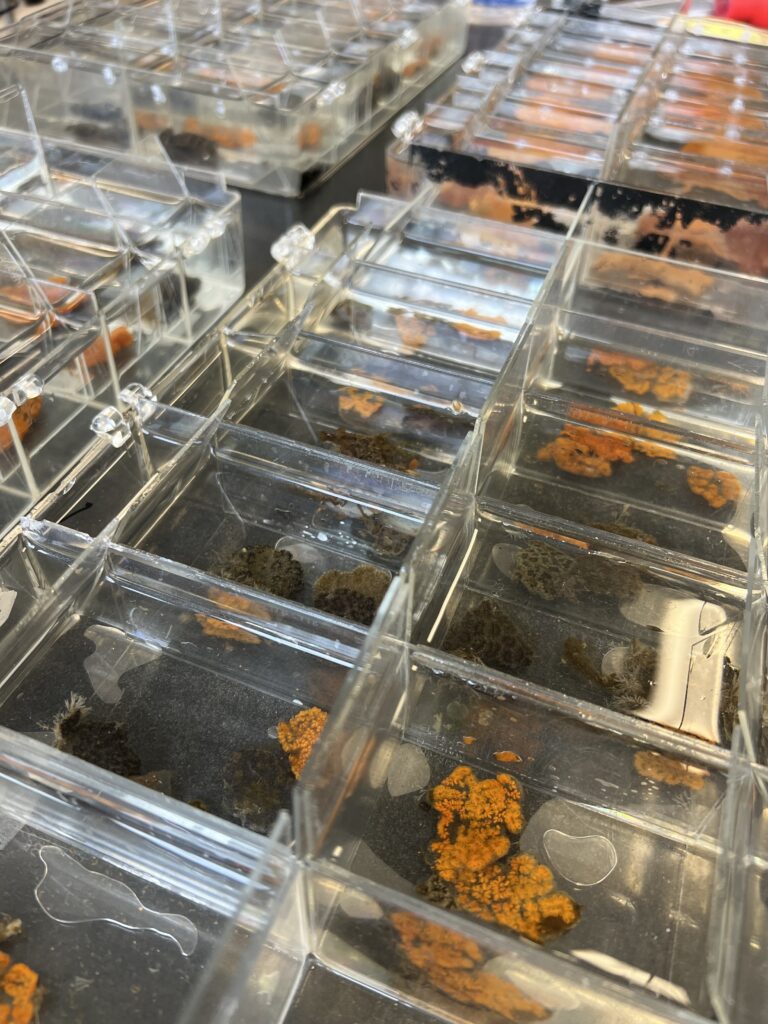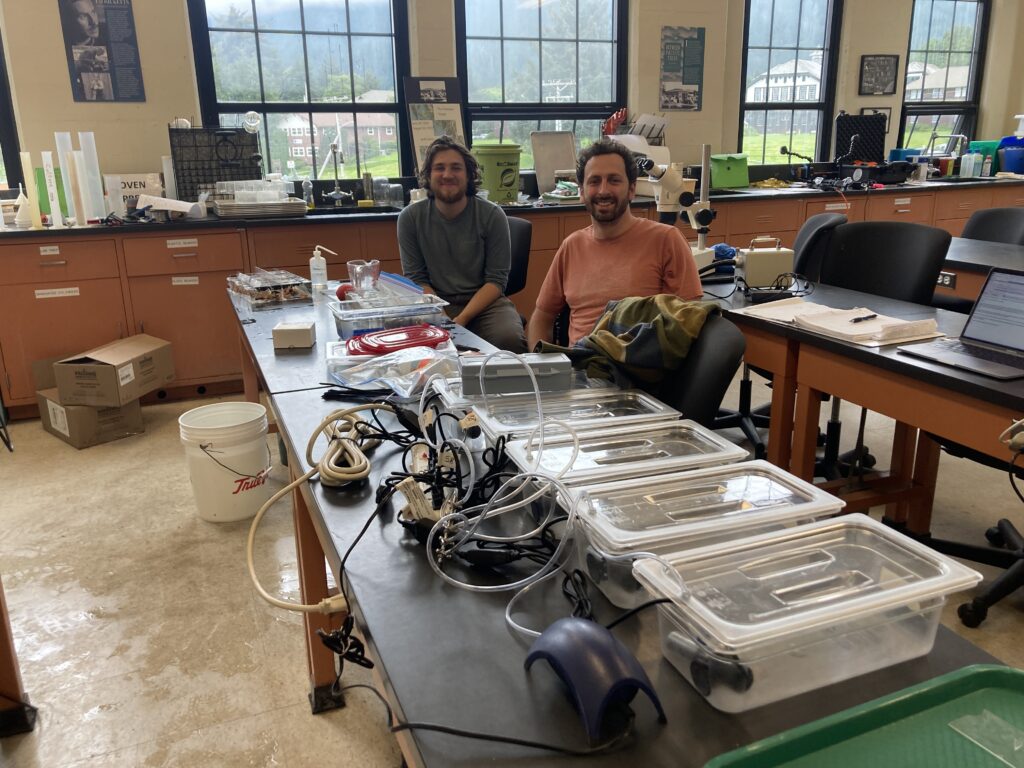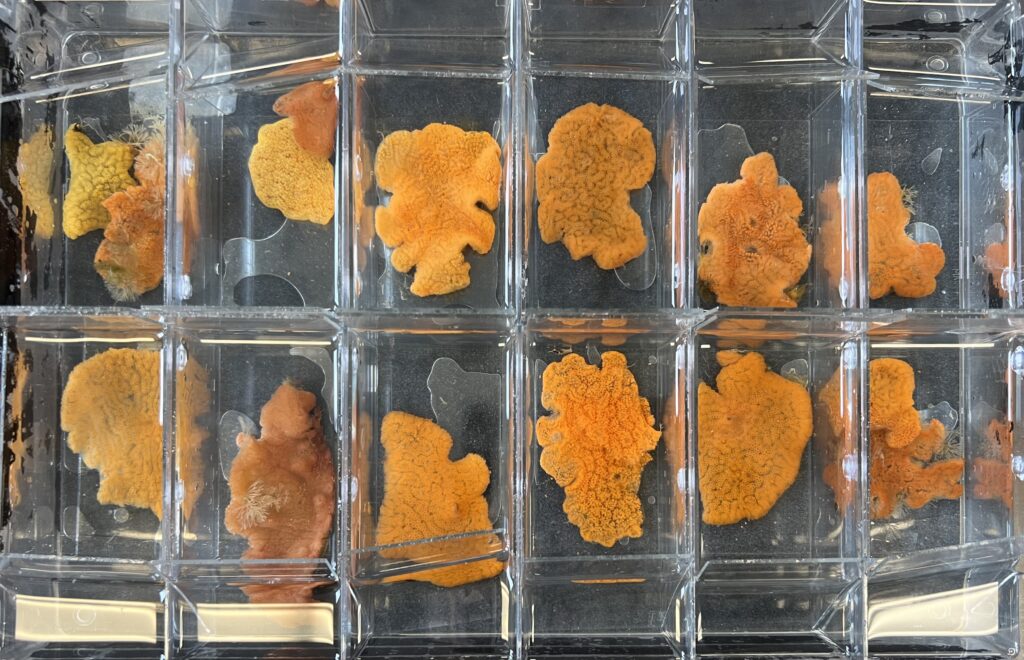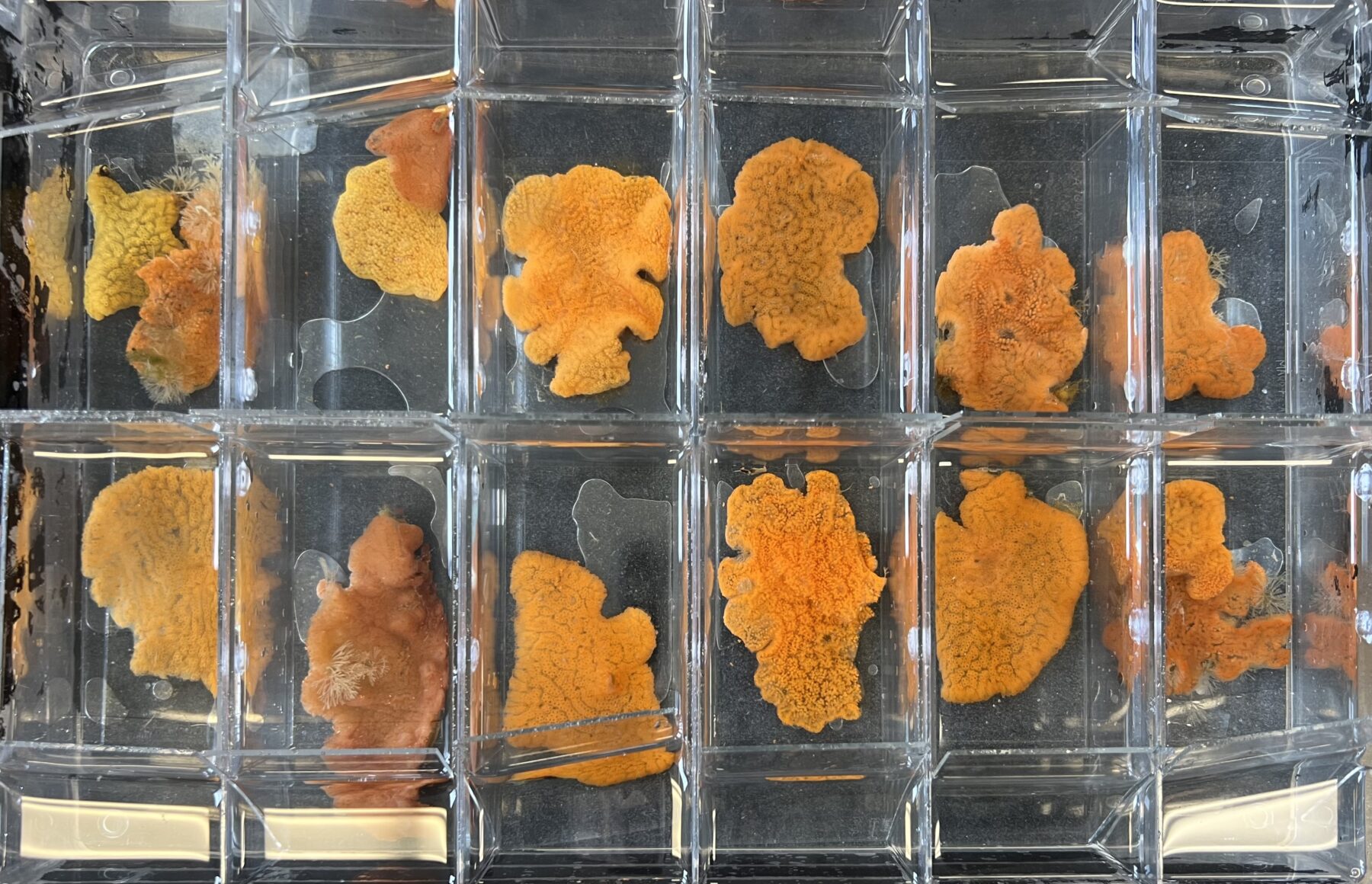
News, Research, Featured
News, Research, Featured
News, Research, Featured
Researching Cosmopolitan Tunicates
The Sitka Sound Science Center recently had the opportunity to host researchers Zachary Tobias, Dr. Carolyn Tepolt, and Gareth Miller from Woods Hole Oceanographic Institution of Massachusetts. The group traveled to Sitka to study a tiny sea squirt that is new to town, the cosmopolitan Golden Star Tunicate Botryllus schlosseri, now found on the coastline of all continents except Antarctica. The Golden Star is extremely successful and considered invasive.
Recently discovered in Sitka, Alaska, one of its more northern locations, PhD student Zachary Tobias traveled here to have a closer look. The speed and rate of this tunicate is a bit alarming, and so an effort to learn more about it is underway. In some places such as Bar Harbor Maine the Golden Star tunicate has already wreaked havoc with oyster farms as well as competing with native species and disrupting the local ecosystems. Tobias’ research is focusing on the tunicate’s temperature tolerance range. Tobias is both monitoring the heart rate fluctuations of mature tunicates from cold to hot extremes as well as the lesser developed larval stage’s ability to attach onto substrate while contending with high and low temperatures. Two other research facilities are hosting Tobias’ experiments along the pacific coast in Bodega Bay, and Sand Diego California. This data will help researchers in projecting future tunicate spread and strategize possible management. Tobias was assisted by his advisor Dr. Carolyn Tepolt as well as undergraduate Gareth Miller during his experiment.
Miller, originally from Juneau, was also given the opportunity to conduct some of his own tunicate research focusing on the Chain or Violet tunicate Botrylloides violaceus. The Chain tunicate originated from the western pacific coast of Russia and has found its way to Sitka as well as other North American harbors, but not yet in Juneau. To investigate why this might be Miller has been testing the tunicates tolerance to salinity content of the water. Juneau lies near the mouth of the Taku River and that fresh water mixing with the salty ocean results in brackish water containing a much lower salinity content than the waters around Sitka. Preliminary results suggest that the more brackish the water the less successful the tunicates, indicating that Juneau’s geographic location near a freshwater source is providing protection from the invading tunicates for now.
Tunicate research is extremely important, if left unchecked they could not only compete with native species disrupting the local ecosystem, but also create devastating impacts on resources such as aquaculture and even salmon harvest. The Sitka Sound Science Center is proud to lend its facilities to researchers to help aid in furthering our understanding of the natural world.
For more information on Tobias’ tunicate research email ztobias@whoi.edu
